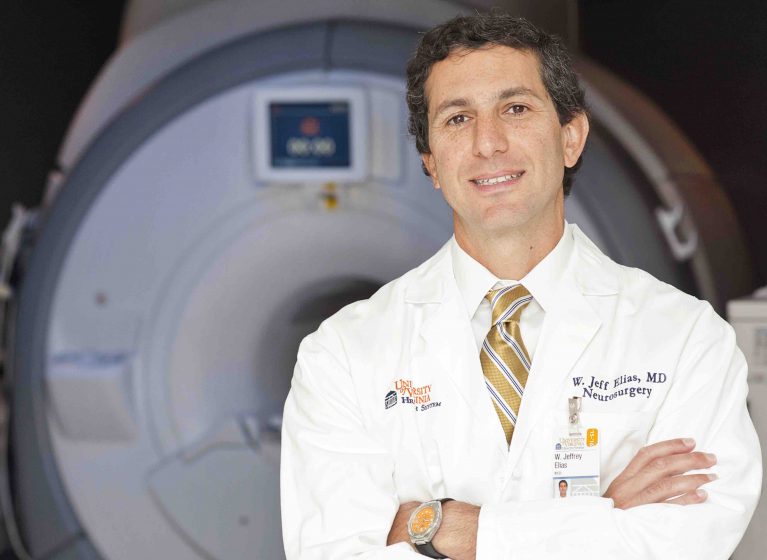An approach we pioneered that uses sound waves instead of scalpels to treat essential tremor, a common movement disorder, offers long-lasting relief without side effects following the procedure, a new study shows.
The study looked at the "durability" of the benefits of focused ultrasound treatment for essential tremor over five years. We knew that the treatment could have dramatic benefits for appropriate patients, but, because the approach is relatively new, there was no way to know how long those benefits would last.
But the news is good: Five years after treatment, clinical trial participants continued to see their treated tremors reduced by more than 70%. And there's more good news: No progressive or delayed complications emerged during that time.
“It is exciting to see such durable results after an outpatient procedure for a sometimes disabling problem like ET,” said researcher Jeff Elias, MD, a UVA Health neurosurgeon and focused ultrasound pioneer who served as the study’s principal investigator. “It is important to note that most of the patients had very long-lasting benefits, but there are some cases where tremor can recur.”
That's an important caveat. Like any treatment, it may not work for everyone and is not appropriate for every patient. But for those who benefit, the difference can be dramatic, as we saw during the clinical trials testing the technology: Study participants would enter an MRI with their hand shaking uncontrollably and emerge with their ability to write or feed themselves restored.
"This important trial verifies the long-term benefits and safety of the focused ultrasound procedure that we have performed for hundreds of patients with tremor at UVA,” said Shayan Moosa, MD, a UVA Health neurosurgeon who partners with Elias to perform focused-ultrasound procedures. “As this is an incision-less and outpatient treatment, we are able to effectively reduce tremor in patients who may not be able to or may not want to pursue more invasive options."
